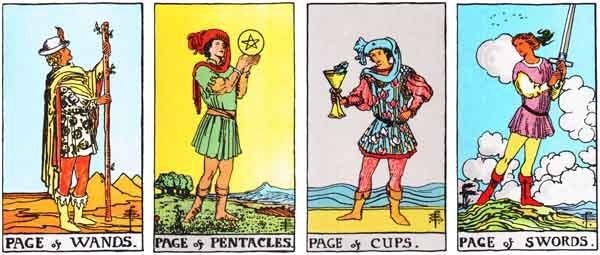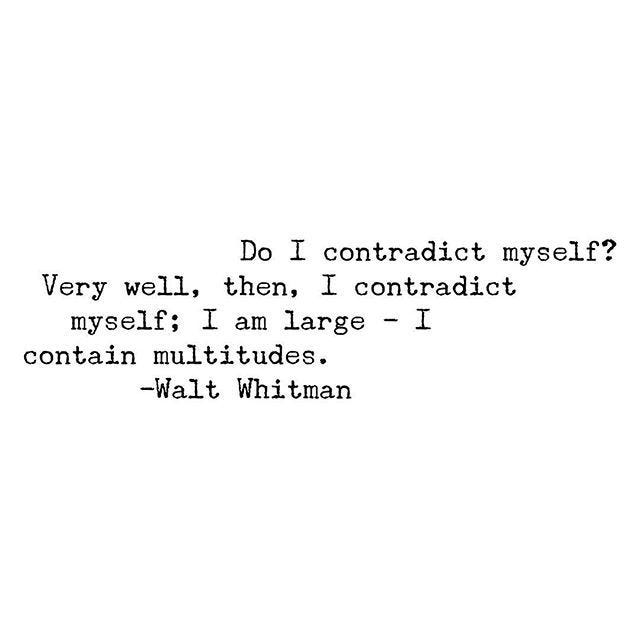28 things I've learned in 28 years (Part 1)
Manifesto on aging and the wisdom I have gathered so far.
Today is my champagne birthday: I’m 28 on the 28th.
I used to cry on my birthday because it meant I was slinking farther and farther from precocity. I believed any intelligence or talent I possessed depreciated with age, that every year garnered cancelled out the eminence of any goal or dream coming to fruition.
The trend of women infantilizing themselves (donning bows, sharing memes with delicate fawns, touting “I’m literally just a girl” mantras, etc.) and going to extreme lengths to appear small and youthful (the hoarding of skincare products, preventative botox, the resurgence of “thinspo”) has only further internalized this anxiety about aging, on a personal and collective level.
Don’t mistake girlhood for empowerment—it’s nothing more than patriarchy in disguise, yet again. Patriarchy doesn’t want us to be bigger or wiser or more powerful.
So from here on out, I’m radically embracing aging. As a political statement, as a protest. No more crying on my birthday. No tears to see here. I’ve tired of it!
When I was a child, I ached to be an adult with freedom and autonomy. I’m going to channel that energy into the next stages of my life. I want to imagine a future for myself beyond mourning my inexperience. I have control over whether or not I buy into the hysteria about aging, and how much I suffer as a result.
I want to be old, sooooo old, so freaking old! I want to be even more courageous and mature and breezy and cool and interesting and loving and thoughtful and generous and capable and joyful with every passing year.
My goal is to be a wise old lady, the embodiment of the crone archetype, who lives on a hill in a Victorian house with stained glass bay windows and a façade of deep aubergine.
I want my friends’ daughters’ daughters to stop for tea and ask me for advice and this is what I’ll tell them:
1. Be like melting chocolate.
Don’t torture yourself if you haven’t reached a goal or a dream by the arbitrary milestone you believed you would. Perhaps you weren’t capable or ready to have it yet, and that’s okay—it’s part of the process.
An incubation period might feel like procrastination or inaction, but you’ve probably been resting, discovering what you truly enjoy (also known as “fucking around and finding out”), and building enough self-esteem to feel deserving of success—all steps that might seem like thumb-twiddling, but are necessary before going full-force toward a goal. You’re not ready until you’re ready, and you’ll know when you are.
If you pursue a project before you feel deserving of success, you will half-ass and self-sabotage it; too much action, too soon, can set you back further.
Even if I did publish a novel at 23—as I hoped I would, and felt like a failure for not accomplishing—it would have been a disaster because I wasn’t ready. I didn’t love myself. I hadn’t honed my skills enough because I didn’t love myself. Moreover, I had no life experience to warrant writing a novel, because I was 23.
Whenever I failed, it was always protection from embarrassment or redirection to something better. For the sake of us all, I will refrain from writing a novel until I am 35.
I went to a psychic a little over a year ago, and from the recurring page cards that showed up in the tarot reading, she determined that I was like melting chocolate. If you try to warm it up in the microwave—all at once in one great big flash—it will harden, get all gross and chunky.
You have to melt chocolate slowly if you want it to turn out well. What she meant was: I had to heal and figure out who I was before chasing success.
Whenever I finally reach a flow state on a project, I think: “I wouldn’t have been ready for this, even a week ago.”
Success that happens in one great big flash is often what’s celebrated and gets the most attention, but it isn’t inherently better than small wins and slow growth. Roll up your sleeves, don’t compare yourself to others, and trust in divine timing. There’s no rush—you’ll get there.
2. Inconvenience each other.
Even if cancel culture and catholicism weren’t having a moment in the zeitgeist, making a mistake and inconveniencing others as a result would still be my biggest fear.
I used to live inside a coat of armour—nothing got in, nothing got out. I solved everything by myself. I spooked easily, like a horse in the night. I sheltered myself with roadmaps and calculations and rules.
I tried to be the friend who gives advice, and never needs it. I never wanted my friends to see me falter or be imperfect or take up space with my problems or emotions. When I talked about my problems, it was only once they had been solved, made didactic, tied up with a bow.
But because I am human, I made Big Mistakes last year, and the unconditional love and support my friends and family showed me made me realize that if I were never inconvenient, the love others have for me would, perhaps, mean less (and vice-versa). Being vulnerable and permitting our imperfections to be seen are what draw us closer to each other. We are lovable and worthy of compassion because of our flaws and our messes and our humanness.
Extending and receiving empathy and understanding are the only ways any of us make it out alive. There is no need to fear imperfection because we will save each other again and again.
3. Emotional regulation is leadership.
Sometimes, you have to gently tell yourself to get it together. Feel your emotions, but don’t let them control you. Build your tolerance for distress and your ability to soothe yourself.
Life will send you absurd disasters and crushing disappointments, and it’s up to you to learn how to handle them without frantically spiralling out of control or needing to compulsively dissect them with your friends over and over.
The Jungian psychologist Marie-Louise von Franz once said, “Sensitive people are just tyrannical people—everybody else has to adapt to them.”
Resisting tyranny doesn’t mean becoming a martyr or a robot—as I said in the previous point, your community can and should uplift you (and vice-versa).
But don’t wallow and stay trapped in your suffering and make it everyone’s problem forever. Take that unconditional love and support and use it to dust yourself off, get better, and take care of yourself. It’s graceful to know how to summon your own strength and wisdom.
4. Be unapologetically discerning.
Just because you are an excellent conversationalist and can talk to anyone for two hours doesn’t mean you should if they bore you.
Just because you are compassionate doesn’t mean you should forgive repeated betrayals or tolerate one-sidedness.
Just because you like one or two people in a friend group doesn’t mean you should hang out every weekend. Try once a month. Try not at all. Try hanging out with those one or two people separately.
Be intentional and know exactly what you want and who you want to be in your relationships, both platonic and romantic, serious and casual, persisting and fleeting.
A friend to everyone is a friend to no one. Have integrity and self-discipline. Going along with things and being polite are not acts of kindness—boundaries, honesty, and gracefully excusing yourself are more merciful.
By having the courage to say “no” to what doesn’t serve you, you’ll attract what you do want. And when you have cultivated a beautiful circle, love it with your whole heart.
5. Whatever you do, do it with your whole heart.
Don’t rush through your life. Make every experience as juicy as possible. Milk the mundane for all its worth.
When it’s January, don’t long for July—drink hot chocolate with big plump marshmallows, go for a walk in a snowstorm and watch the snowflakes glimmer and pirouette under lamplight, hibernate and curl up under a blanket with a book.
When you visit a new city, do the kitschy, tourist-y things that a local would make fun of you for. Then wander aimlessly, down alleys, through parks, into cafes—let your curiosity lead you to places the locals haven’t discovered yet.
When you cook yourself dinner, pretend you own a restaurant—pick the finest ingredients, plate your meals, add a garnish.
When you read a book, highlight and dogear it, mark it up, make it messy, let the next reader know you were there.
When you write, don’t half-ass a metaphor and tell yourself, “Eh, I can get away with it.” Spend hours agonizing over a comma. Communicate with the muses, romanticize your writing process. Treat your work with love and respect.
When you love, don’t keep score—give because your love is an infinite resource. Write love letters, make playlists, listen generously, respond thoughtfully.
6. Stand for something.
Think for yourself, think critically. We have more exposure to the opinions of strangers than ever—do you agree, do you disagree, is there nuance missing from their takes? Form opinions on books and movies before reading the reviews. Ask yourself how you feel about videos and social media posts before letting the comments decide for you.
Read and educate yourself. Be intellectual and learned and pretentious. Have controversial opinions, hot takes, and critiques, and don’t be afraid to share them. Every glamorous woman has at least one outrageous opinion.
When you say yes, don’t dip your toes in, then recoil, then wade in slowly—dive into the deep end of your yes.
Saying “no” can bring you more opportunity than a “yes,” even if it’s just more time for yourself. It takes courage to make the boring choice or take the unconventional route.
The more you know what you want and what you believe and can fearlessly vocalize it, the more you’ll respect yourself.
7. Embrace your past selves.
With the demand that everyone have a personal brand and aesthetic, the permanence of the curated digital self, and the natural comfort categorization offers, I’ve always felt pressure to settle into a fixed, unified self, and distress at failing to do so.
I used to rip out the pages of old diary entries because they made me cringe; the past self who wrote them was repulsive, incongruent with my current, more exact self.
But I’ve come to realize the only way to find peace and sincere, grounded self-knowledge is to accept, recognize, and extend compassion to my past selves without pathologizing, regretting, or erasing them. I am not a persona or a brand—I am a complex, fluid contradiction, constantly transformed by my experiences, mistakes, and social processes.
Cringing means you’re learning, adapting, and growing. Don’t be ashamed of the past selves that delivered you to the wisdom you have today. They’re all you.
Part of “growing up” is, ironically, returning to the wisdom of your past selves that was lost or repressed along the way either due to perfectionism or societal pressure or pure fear and hatred, and learning how to harness and moderate it.
I look to my 13 year-old self for fearless self-expression and moxie.
I look to my 18 year-old self for hard work and how good it feels.
I look to my 23 year-old self for taking risks and doing hard things.
I look to my 25 year-old self for being discerning and enjoying solitude.
I look to my 27 year-old self for seeing the lesson and magic in everything.
8. Be not afraid.
You know exactly what your needs and desires are, but you are afraid of them—the enormity of them, the inconvenience of them—so you ruminate about the pros and cons of what you know you want to do and call that indecision.
You don’t believe any decision you make could be the right one because you don’t trust yourself, so you never make any. Or you’ve been conditioned to make yourself so small that your needs and desires have been repressed into obscurity.
So how can you really know if you want to do something?
Someone I met only once gave me this life-changing advice: Imagine you’ve been in a freak accident that has damaged the part of your brain that feels fear. Without fear, would you do it? If fear is the only thing holding you back, do it. If there are other valid concerns, don’t.
Decisions are information. The more lessons you learn and the more data you gather, the more you will discover about yourself, and the better you will get at trusting your decision-making and making authentic choices.
If you regret a decision, forgive yourself and prove to yourself that you can bounce back from it.
Don’t fall for the sunk cost fallacy. If you’ve been self-sabotaging or making inauthentic choices your entire life, you can stop today, right now.
To read the other eight lessons, please become a paid subscriber.







